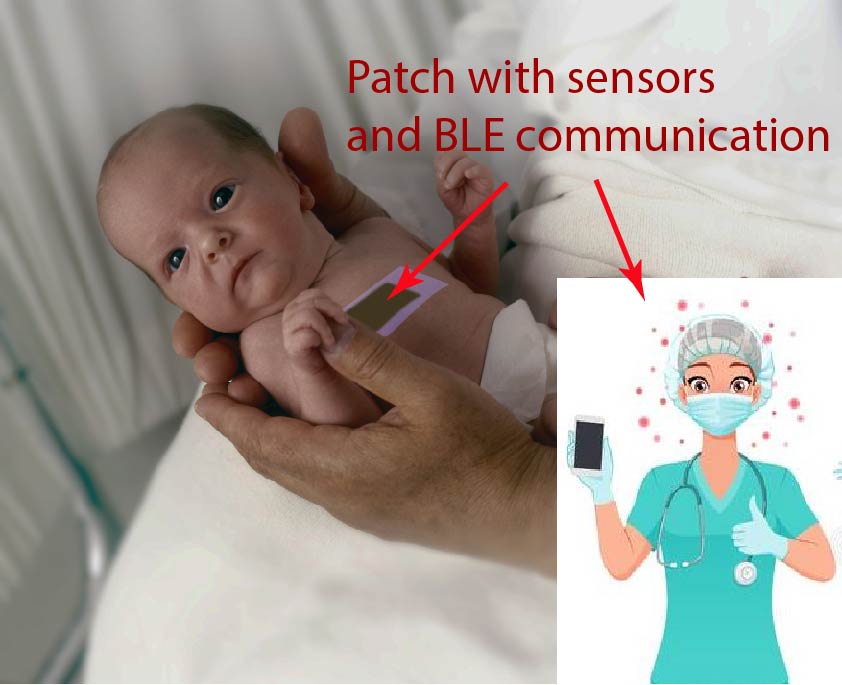MSc thesis project proposal
[2020] BabyPleister: Health condition monitoring of newborns at home. [Already taken]
In the Netherlands, a baby in maternity care often stays around 2-3 days in the hospital. If their health allows, taking the baby home as soon as possible has many advantages. Maternity care in hospitals is a very costly environment for a baby to be in. Home care for newborns enables more care and contact with the parents and reduces stress for the newborn.
In addition, measurements performed in hospital maternity care involve multiple wired electrodes to be attached to the babies. This decreases comfort for babies and can increase their stress levels.
Also there are babies that are not monitored well enough in home care. For instance: insufficient monitoring at home results in permanent handicaps due to jaundice for 10 babies each year, in the Netherlands only.
Assignment
In order to outperform this care in hospitals the sensor patch should at least monitor all the parameters the nurses measure, and at least as frequently as the nurses do. Nurses in maternity care check on babies every 4 hours and check the following parameters:
1. Temperature
2. Heart rate
3. Respiration rate
4. Oxygen saturation
5. General appearance of the skin, including an assessment of jaundice. This last point, general view at skin, means the nurse checks whether the baby looks healthy overall. This is done to get an impression of whether the baby might have underlying conditions that are hard to monitor with current technology. Jaundice is one of the most important examples of these conditions.
Requirements
Hands-on experience with low power electronics especially:
Low power Microcontrollers
Bluetooth low energy data transmission (BLE)
Basic knowledge of biomedical sensors
Contact
dr.ir. Ger de Graaf
Bioelectronics Group
Department of Microelectronics
Last modified: 2022-09-26
